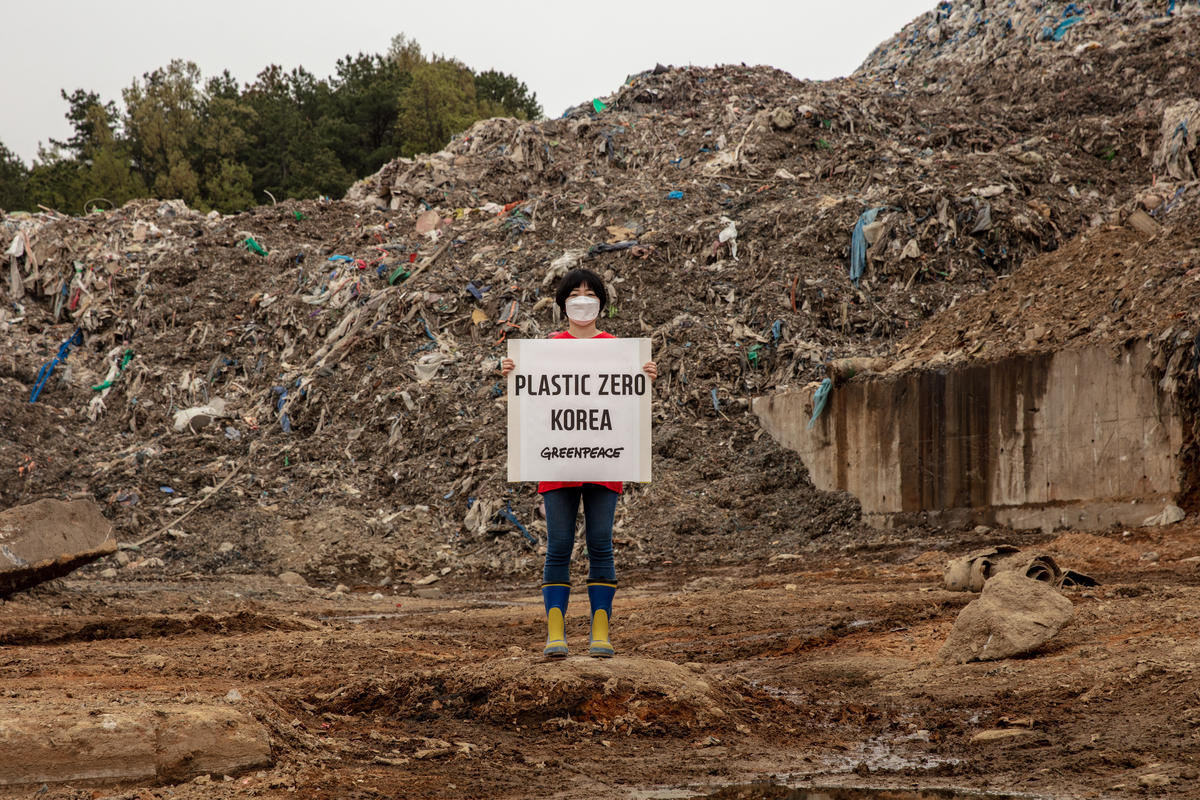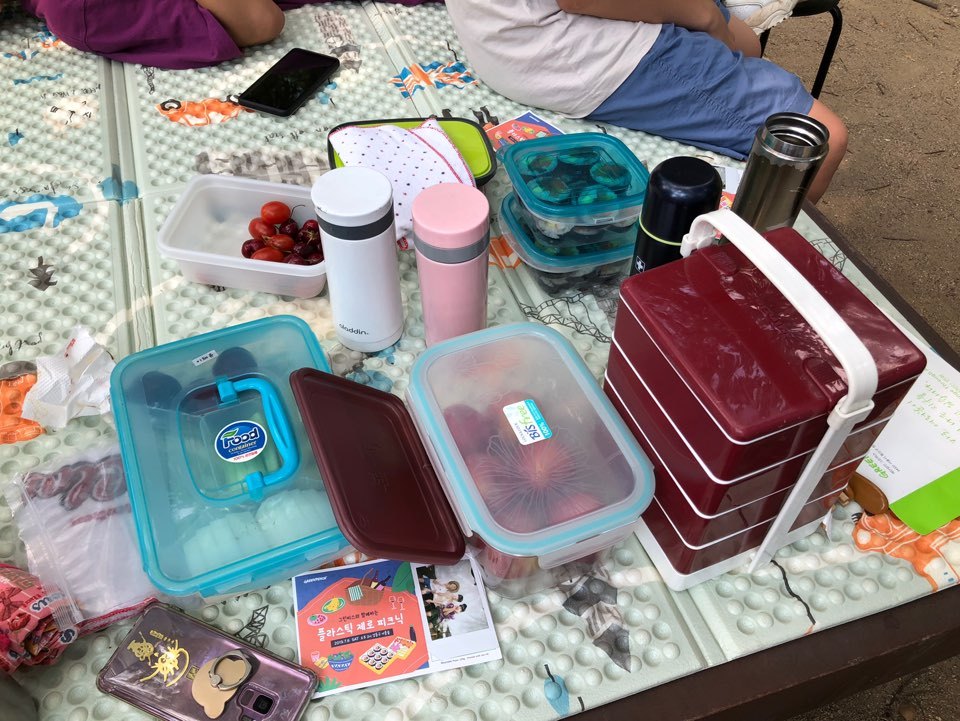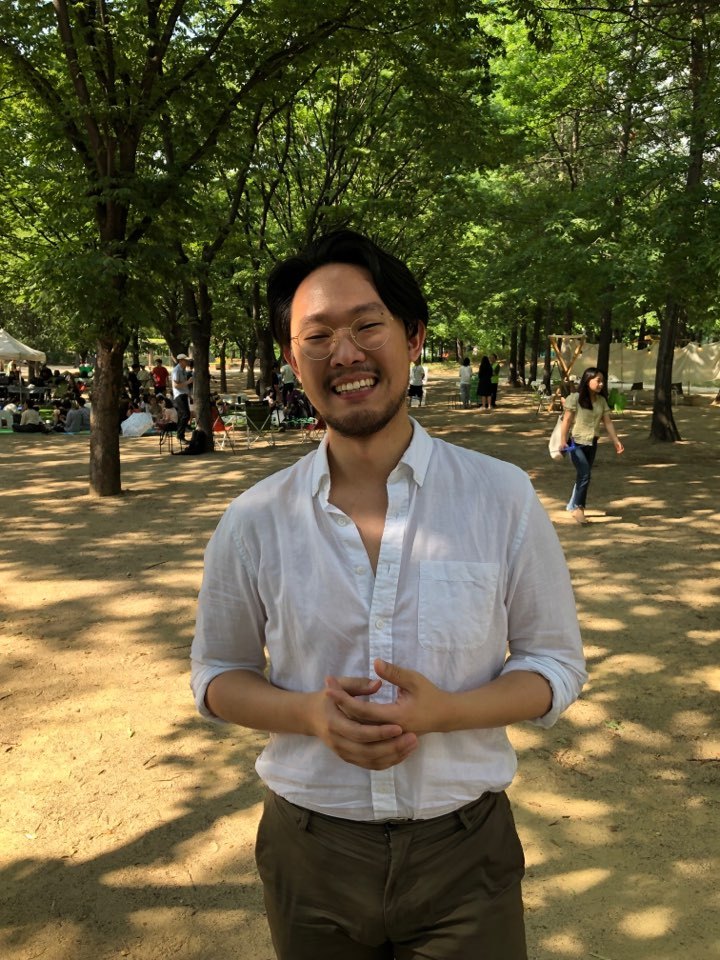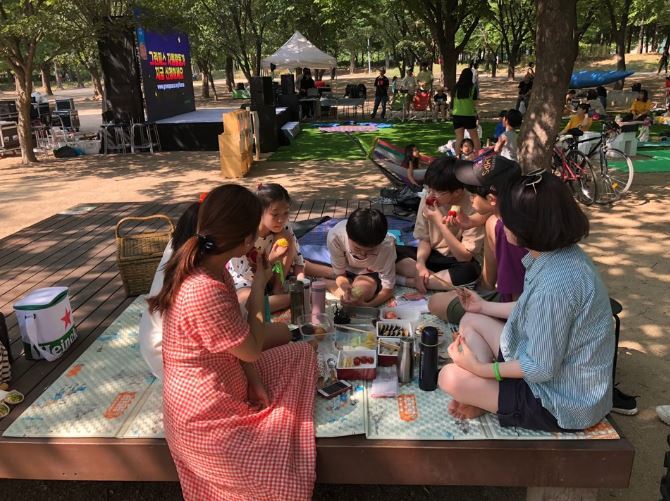[Feature] South Korea’s war on plastic gains momentum
Awareness is spreading, but bigger changes needed
By Ock Hyun-juPublished : July 21, 2019 - 16:06
Plastic straws, take-away cups, spoons, chopsticks and multilayered parcels delivered at the doorstep have for long been a regular part of daily life in South Korea.
However, amid the increasing awareness of the dangers excessive plastic waste has on marine life, landscapes and human health, there are growing efforts to reduce its use.
According to a recent survey of 999 Koreans by Greenpeace Korea, 57.1 percent of respondents said they reduced plastic use over the past year while 41.6 percent said they used the same amount. The majority said a lack of alternatives was the biggest impediment to cutting back on plastic use.
The government vowed to halve plastic waste by 2030, but activists call for stronger regulations to bring about fundamental changes to the culture of using disposables and the companies’ plastic production.
However, amid the increasing awareness of the dangers excessive plastic waste has on marine life, landscapes and human health, there are growing efforts to reduce its use.
According to a recent survey of 999 Koreans by Greenpeace Korea, 57.1 percent of respondents said they reduced plastic use over the past year while 41.6 percent said they used the same amount. The majority said a lack of alternatives was the biggest impediment to cutting back on plastic use.
The government vowed to halve plastic waste by 2030, but activists call for stronger regulations to bring about fundamental changes to the culture of using disposables and the companies’ plastic production.

Plastic waste crisis
Korea is one of the world’s biggest consumers of plastic.
In 2015, it consumed 132.7 kilograms of plastic per capita, surpassing both the US and China at 93 kg and 58 kg, respectively, according to EUROMAP.
According to data compiled by Statistics Korea, 98.2 kg of single-use plastic containers, 420 single-use plastic bags and 509 single-use plastic cups were used per capita in 2016.
China’s ban on imports of almost all recycled waste including plastic and paper in January last year led to a “trash crisis” in Korea. The country then turned to Southeast Asian countries to export its plastic waste.
Not all the waste was legally handled.
Earlier this year, the government had to take back 6,500 metric tons of waste illegally exported to the Philippines by a Korean company. The company had claimed the waste was recyclable plastic, but it included mostly nonrecyclable items.
As regulations were tightened abroad, Korea began to see trash pile up in cities such as Uiseong. There are about 235 mountains of garbage, totaling about 1.2 million tons, across the country, according to government data.
Fight against plastic waste
On the back of last year’s crisis, Koreans are becoming more aware of the garbage problem and are increasingly joining the global fight to reduce plastic use in their daily lives.
“Following the trash crisis last year, I realized I had used a lot of disposable items carelessly and unconsciously,” said Jang Yoon-jeong, 20-year-old university student.

She was participating in a plastic zero picnic organized by Greenpeace Korea at Seoul Forest earlier this month. Some 70 people prepared their food without using disposable items and enjoyed it on the picnic.
Jang began to take small actions -- like using her own tumbler at a cafe, refusing plastic bags and single-use items.
“It is a bit inconvenient, but I feel comfortable that I am doing something for the planet.”
But it is often unavoidable to use single-use plastic items in Korean society, said Choi Yu-ri, who is trying to cut back on plastic use after she saw media images of animals killed by plastic in the ocean.
“I cannot avoid it. I do a lot of online shopping and all the parcels come in excessive packaging.”
Choi, who has an 11-year-old daughter, now carries around her own bag when she goes grocery shopping. She also asks restaurants not to give her disposable spoons and chopsticks when she orders delivery food.
“But there are clearly limits to what can be done at an individual level,” she said.
Zero-waste shopping
Increasing concerns over plastic waste has led to the opening of the first zero-waste grocery store in Korea.

“Despite the advanced technologies in processing trash, the amount of trash in itself is a problem. We need to reduce the waste,” said Song Kyoung-ho, who opened The Picker, the country’s first zero-waste grocery business in January 2016.
The Picker sells groceries from containers without any packaging, so that customers buy however much they want and take it in their own multiple-use containers as part of the zero-waste campaign to foster an eco-friendly lifestyle.
When it opened, the store mainly attracted eco-conscious and vegan customers. Recently, however, he saw a growing number of customers who visited his store out of curiosity and became determined to join the environmental effort.
“We aim to restore a healthy culture of consumption. These days, we are throwing away products even when they are working well,” he said. “But I can clearly see a dramatic increase in public awareness of the trash problem, especially after the trash crisis last year.”
For now, what Song wants most from the government is a revision of laws to reflect the budding culture of zero waste. There are currently now laws stipulating how restaurants and stores can sell groceries and food without packaging.
Long way to go
In order to combat the plastic waste problem, the government has laid out plans to cut back on plastic waste creation by 30 percent in 2022 and by 50 percent by 2030. It said it will achieve a recycling rate of 70 percent, up from the current 34 percent, by 2030.

Last year, it banned the use of single-use cups in cafes and fast-food chains and only multiuse cups can be used inside the establishments. This year, it also prohibited the use of disposable plastic shopping bags in supermarkets.
Businesses are voluntarily joining the move. As of July, 21 fast-food chains and coffee shops, three delivery companies, two bakery brands and five supermarkets signed a memorandum of understanding with the Ministry of Environment to reduce plastic use.
“Public awareness on the need to reduce single-use plastic items is fast growing and the industry is also changing,” said an official from the Ministry of Environment. “We will enforce regulations in stages.”
The government is now drafting a road map on reducing single-use items, with a plan to announce in October, according to the official.
Activists, however, call for more drastic actions from the government to keep pace with the public’s increasing environmental awareness.
“The government’s measures are not enough and are short-sighted, as they lack restrictions on plastic production,” said Kim Yi-seo, a campaigner at Greenpeace Korea, adding that the government does not even have accurate data on how many disposable items are used in Korea.
“The ‘throw away’ culture must change,” she said. “But there are clearly limits to what consumers and companies can voluntarily do.”
“The government should enforce tougher regulations -- such as banning plastic production and reducing plastic consumption -- to dramatically cut back on plastic waste.”
By Ock Hyun-ju (laeticia.ock@heraldcorp.com)
-
Articles by Ock Hyun-ju








![[KH Explains] How should Korea adjust its trade defenses against Chinese EVs?](http://res.heraldm.com/phpwas/restmb_idxmake.php?idx=644&simg=/content/image/2024/04/15/20240415050562_0.jpg&u=20240415144419)











![[Today’s K-pop] Stray Kids to return soon: report](http://res.heraldm.com/phpwas/restmb_idxmake.php?idx=642&simg=/content/image/2024/04/16/20240416050713_0.jpg&u=)